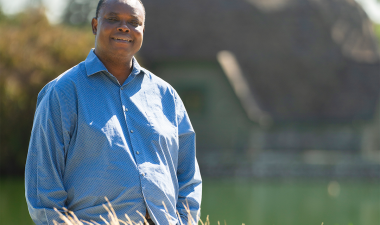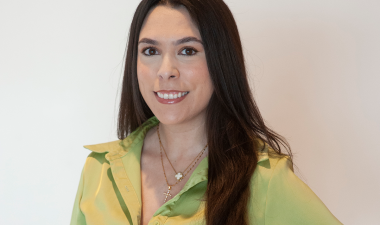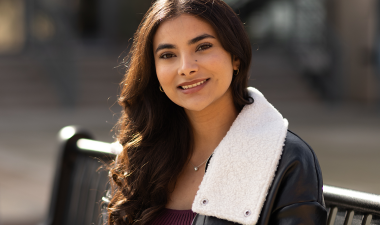One of Nicole Campbell Cochran’s first acts when she was hired a year ago as Stanislaus State’s director of McNair Scholars, was to seek a means to assist more than the 25 students funded annually for the program for first-generation, low income or ethnically underrepresented students interested in graduate school.
During a conversation with a mentor, she came up with McNair Explorers, a space-themed name that draws on the fact that the larger Scholars program was created in honor of Ronald McNair, one of the seven crew members killed in the 1986 Space Shuttle Challenger explosion.
Although she doesn’t have funding for Explorers, she welcomes students who are interested in research and helps them enroll in Stan State’s University Honors Program so they can experience that component. She’s also seeking free opportunities to introduce them to graduate programs.
“The whole premise was to expose more students to the opportunities of research, and fully funded master’s and Ph.D. programs,” Cochran said. “Most of them qualify for McNair, but we can only accept so many.”
She’s sharing whatever resources and information she receives with the Explorers.
Helping underserved college students has been Cochran’s mission from the time she realized as an undergraduate that she wanted to work in education, a calling that would have surprised her high school counselor, who told her she was not college material.
Growing up in South Central Los Angeles in the 1980s, when the neighborhood was rife with gangs, crime and drugs, she nearly flunked out of Manual Arts High School in ninth grade.
“I was hanging out with the wrong crowd,” Cochran admits. “When I got my grades, my dad said, ‘You’re going to summer school, and you need some new friends.’”
So, she went to summer school and became a better student.
Her parents – a father who went as far as eighth grade and mother who graduated from high school – didn’t talk about college with their three children.
But, when her dad, who started his own trucking and bus company, drove a group on a bus trip to Fresno, he saw the Fresno State campus and decided to send his daughter there.
Cochran credits the Educational Opportunity Program with getting her through college, starting with Summer Bridge, where she met lifetime friends. Once classes began, she realized she couldn’t even write a proper sentence. Out of spite, she majored in English, starting with remedial classes to learn the basics her high school failed to teach her.
She also took advantage of the National Student Exchange Program to study at Alabama State University, one of the historically Black colleges and universities.
Surrounded by fellow Black students, she dived into the rigorous academics and came to understand the kind of racism she was experiencing in California.
“It made me have to fight for myself, speak up for myself and speak out against it.”
She also met her husband, Roderick Cochran, at Alabama State. After she graduated, she settled into the life of being a pastor’s wife, looking to serve others.
She was the coordinator of GEAR UP (Gaining Early Awareness and Readiness for Undergraduate Programs) in Marion, Alabama, taking impoverished high school and elementary students on college visits.
She ran an after-school program for an elementary school in the Houston Independent School District, and in 2012, after the family moved to the Central Valley and Roderick Cochran became a pastor in Merced, she realized her lifetime dream of advising college students when she was hired by Fresno Pacific University’s Merced campus.
She later became director of advising at the satellite campus and started teaching business courses on leadership and diversity at the invitation of the department’s dean. He encouraged Cochran, who’d earned a master’s degree in education, to pursue a doctorate.
She researched several online programs and selected the University of Southern California because of its curriculum.
“I never imagined I would get a degree from USC. I always thought it was beyond me,” she said of the university that loomed over her childhood home and that she walked through to get to the local theater.
The Rossier School of Education, from which she earned her doctorate in 2018, “was the best education experience I had,” she said.
Long desirous of working at Stan State, Cochran saw the job opening for director of McNair Scholars and loved what she discovered about the program.
“It resonated with my own experience,” Cochran said. “I never thought about the opportunity of doing research as an undergrad. First-generation students don’t have a clue about their potential and what can be done. That piqued my curiosity. I would love to give an opportunity to students that wasn’t given to me, by no fault of anyone. It just wasn’t available.”
And she is determined to give those opportunities to as many students as possible.



